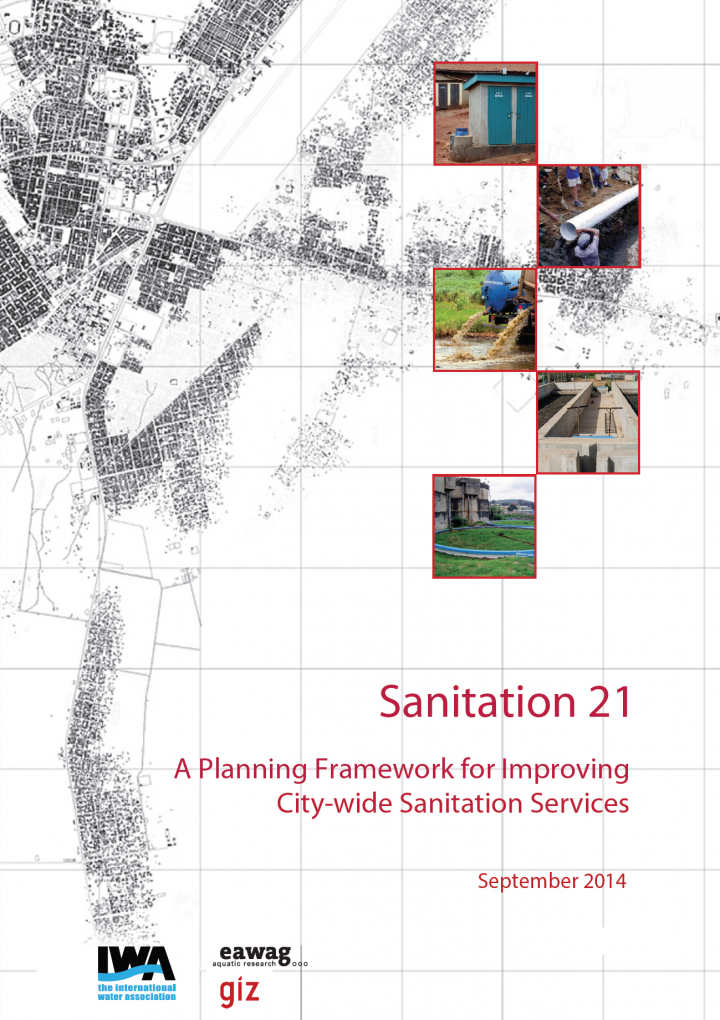Sanitation 21 - Simple approaches to complex sanitation IWA (2014)
A revised version of Sanitation 21 (2014) is an important component of the global sanitation toolkit, which presents a planning framework based on international best practices. Initially developed in 2006, this updated version builds on recent experiences where good planning has formed an integral part of achieving improvements in urban sanitation.
In the context of this document, planning is essentially about responding to real needs and making informed decisions about investments for sanitation improvements involving the prudent use of resources to meet recognized priorities. It helps to identify where investments are required, secure the necessary finances for implementation, and enable cost-recovery for long-term sustainability of sanitation services.
The document sets out key principles and process guidelines to help city stakeholders develop appropriate and affordable solutions to sanitation problems, taking into account technology issues, management arrangements, institutional challenges and demands for improvement from different stakeholders.
The framework is structured around the following five stages:
STAGE 1: Build institutional commitment and partnership for planning
STAGE 2: Understand the existing context and define priorities
STAGE 3: Develop systems for sanitation improvement
STAGE 4: Develop models for service delivery
STAGE 5: Prepare for implementation
Various key activities to support the planning process are presented within each stage. However, these activities should not be viewed as a blueprint to be adhered to exactly, because each situation will have distinct features specific to the local context. Sanitation21 acknowledges that there is no uniform, standardized planning procedure that can ensure sustainable planning outcomes in every city of the World.
The framework, therefore, serves as a basic structure to guide the development of city sanitation plans, which are flexible enough to incorporate additional activities, or more detailed methodologies or planning tools depending on the specific requirements.
++++++++++
Information about the first version from2005:
The first version (2005) was intended to be used as a starting point for discussion and debate amongst sanitation professionals, it does not offer a ‘solution’ but rather, in recognising the complexity of the challenge, it offers a framework which can be used to develop appropriate, sustainable and effective solutions tailored to a specific time and place.
In this document we argue that improving the quality and effectiveness of sanitation investments is not particularly about technologies (although the appropriate application of technology is important) rather it is about developing an explicit understanding of what the objectives of a system are and then designing a system which meets those objectives.
+++++++++++
To find out more about the revised version from 2014, please follow the SuSanA forum discussion link below.
Bibliographic information
IWA (2014). Sanitation 21 - Simple approaches to complex sanitation International Water Association (IWA), London, UK
Filter / Tags
Cities (WG6)Faecal sludge treatment processesUrban (entire city)English
External links
Sanitation 21 - Simple approaches to complex sanitation

